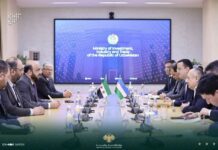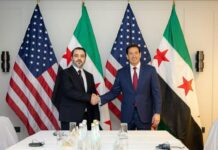 In a significant diplomatic development, the Ministry of Foreign Affairs and Expatriates announced the reactivation of Syria’s permanent mission to the Organization for the Prohibition of Chemical Weapons (OPCW) in The Hague, appointing Dr. Muhammad Kattoub as its Permanent Representative. The decision is presented as part of Syria’s efforts to strengthen cooperation with the international body, which implements the Chemical Weapons Convention that entered into force in 1997.
In a significant diplomatic development, the Ministry of Foreign Affairs and Expatriates announced the reactivation of Syria’s permanent mission to the Organization for the Prohibition of Chemical Weapons (OPCW) in The Hague, appointing Dr. Muhammad Kattoub as its Permanent Representative. The decision is presented as part of Syria’s efforts to strengthen cooperation with the international body, which implements the Chemical Weapons Convention that entered into force in 1997.
The OPCW works to prevent the development, production, stockpiling, and use of chemical weapons and supervises the destruction of existing stockpiles. It includes 193 member states and promotes transparency and international cooperation while assisting members in protection against chemical threats.
Bolstered by Recent UN Support
This step follows a shift in international engagement regarding Syria. On November 4, the UN General Assembly adopted a resolution supporting Syria’s cooperation with the OPCW and welcoming its stated commitment to transparency and confidence building.
The resolution, supported by 151 member states, resulted from recent diplomatic efforts. It is viewed as the first of its kind following the fall of the Assad regime and as an indication of evolving international attitudes toward Damascus. It calls for continued international support for Syria in strengthening security and providing information related to its chemical weapons file.
Reflecting a Desire for Improved Relations
Observers view the reactivation of the mission and Syria’s appointment of a senior representative as a signal of Damascus’s interest in improving international relations and making progress on the contentious issue of its chemical weapons program.
After years of conflict and prolonged tension surrounding this file, the government frames the appointment of Dr. Kattoub as part of its commitment to constructive and transparent engagement with the international community in this field.








